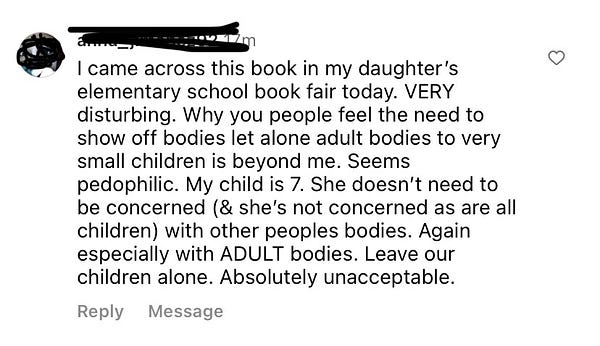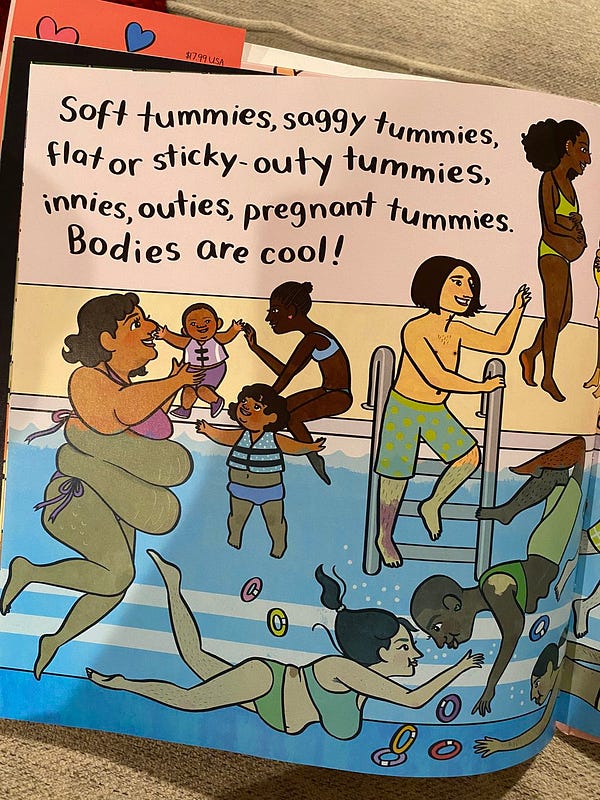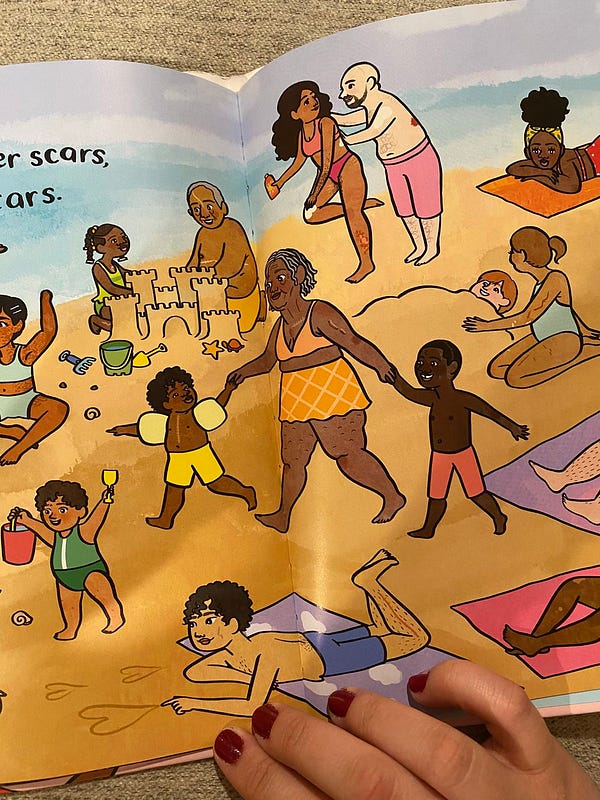Stop Trying To Teach Your Toddler Nutrition
Plus how to navigate fat-as-insult and reclaim juice. It's Ask Virginia: Little Kids Edition.
Heads up! Corinne and I are recording your April Mailbag episode soon. Send us all your questions here.
Disclaimer: You’re reading this column because you value my input as a journalist who reports on these issues and therefore has a lot of informed opinions. I’m not a healthcare provider, and these responses are not meant to substitute for medical or therapeutic advice.
Q: I'd like to know your thoughts on what to do when kids call each other fat. I teach 5-year-olds and it happens sometimes. Often they are calling children fat who are actually very thin but seem to just think it's an insult. I usually say there's nothing wrong with being fat and it's not nice to talk about people's bodies. I know this is not ideal but what else? Advice please!
I think you’re actually pretty close. There is nothing wrong with being fat and it’s not nice to talk about people’s bodies. And 5-year-olds can hold both of those truths together. But I think rather than focusing so much on how to respond in the moment, it might help to step back and think about what you can do to incorporate these values more broadly into your classroom culture.
I’m curious, for example, to know how you (or your school) handle it if a 5-year-old says a racist or homophobic slur. If there’s a process in place for that, I’d want it to be invoked for weight-based teasing or shaming as well. I don’t necessarily mean these kids should be punished; 5 is old enough to understand that they’re using a word to be hurtful, but not old enough to have a working knowledge of the entire complex history of any offensive term. But there should be conversations around why it’s harmful to use physical characteristics as insults and to weaponize someone’s appearance against them, and maybe some kind of restorative justice process between the child who did the insulting and the recipient.
This goes beyond response mode though. How can you incorporate more body diversity in your classroom in terms of the books, videos and other materials you use? Can you start using the word fat as a neutral descriptor, so when the next kid tries to use it as an insult, everyone already knows that, in this space at least, it isn’t one?
I want to be clear that I know you, and all teachers, are already overworked and at capacity and I know I’m asking you to take on yet more work, which may feel especially fraught if it’s not supported by your administration or by the parents of your students. But I do think there can be small wins here. When it was my turn to be the Mystery Reader for my own 5-year-old’s class this year, I brought in Tyler Feder’s Bodies Are Cool, and the kids got so into chanting “bodies are cool!” on every page and in talking about all the cool bodies we saw.
It was a more subversive choice than I realized: Tyler tweeted recently about how some parents react to seeing her book in schools. It’s not great, and, depressingly, helps explain why kids are still using “fat” as an insult in the first place. But we can do better — and I’m so grateful you’re thinking about this.




Q: I have a toddler and he loves food! I recently had to explain that he couldn’t just eat strawberries for dinner because he needed some protein, which has led to a routine of explaining the various nutrients in each part of our meals (Protein helps you be strong! Carbs give you energy!).
I was hoping to get him a book to dive deeper into this, but holy diet culture Batman, it’s wild out here. I just want a neutral presentation of facts, like “blueberries have Vitamin C, which helps your body fight germs,” not “carbohydrates killed my family.” Being a little dramatic over here, but I didn’t think this would be so hard! Any suggestions?
My suggestion—which may surprise you— is to stop trying to teach your toddler about nutrition.




